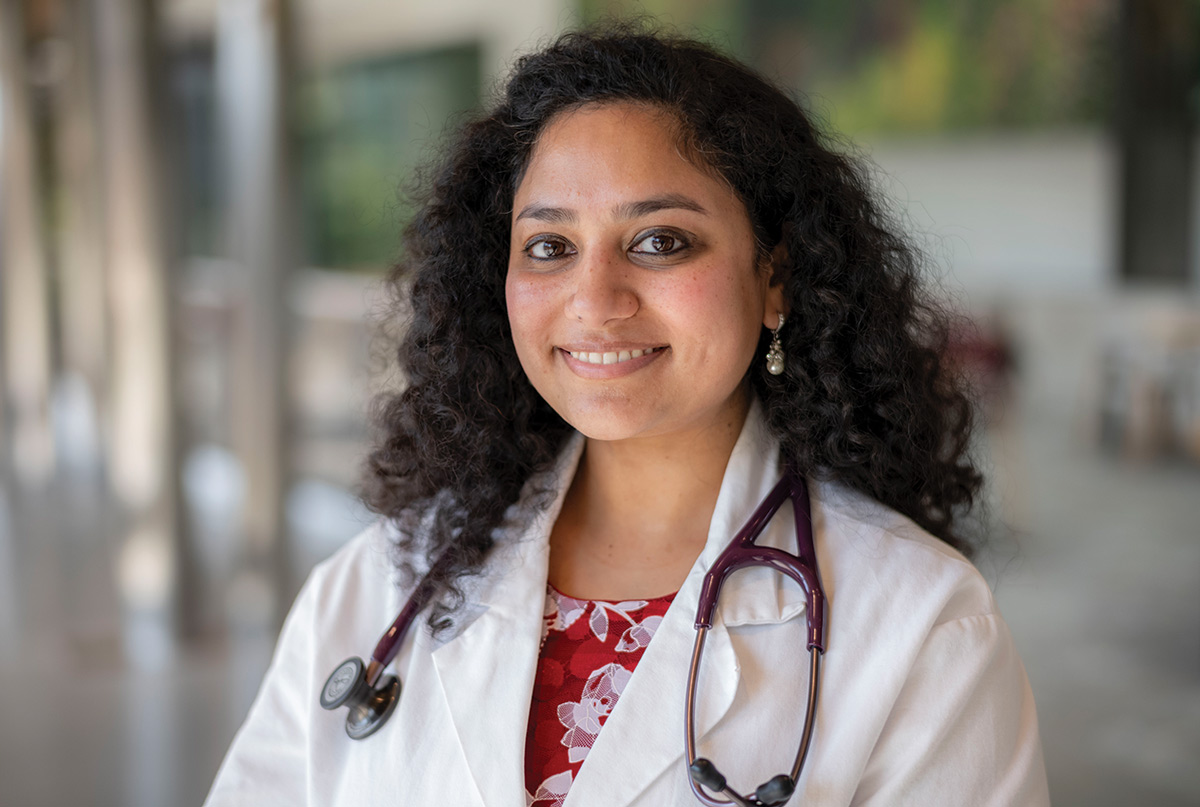Prescribing Change

At Swarthmore, Hussain decided to pursue medicine to follow in the footsteps of her brother (Jawaad Hussain ’05), but that didn’t stop her from taking several marine biology courses with professors Liz Vallen and Rachel Merz. During these classes, she discovered a deep passion for the study of climate change’s impact on the environment. “When I took those courses, that’s when I fell in love with the ocean,” Hussain says. “It was my first real exposure to the importance of conservation.”
This evolved into an interest in climate change and its effects on the natural world, even as Hussain earned her M.D. from SUNY Downstate Medical Center and completed her Internal Medicine residency at Columbia University Medical Center. She joined the faculty at Hospital of the University of Pennsylvania as a hospitalist in 2016 but she still found herself thinking of ways to educate students and colleagues about climate change. She connected with several other like-minded faculty members, including Kirstin Knox ’99, and began to advocate for climate-change education initiatives as well as health system sustainability endeavors.
In 2022, Hussain developed a “Climate Change and Health” elective for medical students. Through a groundswell of support from students and leadership alike, Hussain’s role was formalized into the Director of Planetary Health. She has been working to integrate climate-related education into all aspects of the curriculum.
By teaching future physicians about the impact of climate change on health, Hussain hopes to educate a generation of “climate-smart physicians” who will be mindful of the healthcare sector’s environmental impact, integrate sustainable practices into their clinical work, and advocate for all patients, especially those who are most vulnerable to the consequences of climate change.
Hussain’s curriculum comes at a crucial time. The U.S. health care sector is responsible for an estimated 8.5% of national greenhouse gas emissions, which contribute to worse health outcomes. The medical community is advocating for tangible change. A recent editorial in the New England Journal of Medicine, simultaneously published in over 200 medical journals worldwide, called for emergency action to limit global emissions, protect the natural environment, and safeguard human health. Dean of the Perelman School of Medicine, J. Larry Jameson, echoed this urgency in a statement asserting that “the climate crisis is a health crisis.” Hussain’s role was created to help address this crisis, beginning with the way physicians are trained.
Though her career trajectory may seem unique, Hussain encourages students with diverse interests. “Don’t be afraid to pursue your nontraditional path. or propose new ideas, even if it has never been done before,” she says. “You never know when someone will take a chance on you.”